If you are looking for the best affordable accelerated 4+1 bachelor’s to master’s degree programs, you have come to the right place. These low-cost programs allow students to progress through both a bachelor’s and a master’s degree in one fell swoop and earn both degrees quicker than if they were to pursue them separately. Many 4+1 degrees offer students numerous benefits in the way of convenience, affordability and flexibility. If you are looking to pursue graduate studies, a combined 4+1 program such as those listed below can provide a straight shot to an advanced degree at a reduced price and on an accelerated timeline.
Featured Programs
Methodology
The list of schools was generated by searching the National Center for Education Statistics (NCES) for institutions that offered accelerated 4+1 degree programs. We identified more than 50 colleges and universities in our initial search and narrowed our list down to the top 40 schools based on criteria from the NCES, including undergraduate tuition, graduation rates, and student-to-faculty ratios.
Average Cost of Attendance
As you read through the following list of best affordable accelerated 4+1 bachelor’s to master’s degrees, it is important to consider the schools and the programs they offer in relation to tuition. In other words, avoid choosing a degree based on cost alone and instead determine whether the college or university will meet your academic needs and career goals. For the following article, we ranked schools based on the tuition cost for one academic year of study for in-state students using figures supplied by the NCES. Rates for out-of-state students are provided for your reference as well.
Points:
Under $7,500: 5 points
$7,500 to $15,000: 3 points
$15,001 and above: 1 point
Student-to-Faculty Ratio
We also ranked schools based on each institution’s student-to-faculty ratio and used this figure to get a better understanding of the learning environment at the following colleges and universities. Although there are benefits and drawbacks to both large public universities and small private colleges, we awarded the most points to schools with the lowest ratios from NCES as these institutions are more likely to offer smaller classes and more opportunities for mentoring and one-on-one studies.
Points:
10:1 or less: 3 points
11:1 to 15:1: 2 points
Greater than 15:1: 1 point
Graduation Rate
We used graduation rates to measure student satisfaction and success. Although there are always exceptions, most schools with high graduation rates are engaging students and providing an academic environment that allows them to succeed. On the other hand, schools that fall short in one way or another might find their students leaving prematurely to pursue their degrees elsewhere. Therefore, we awarded the most points to colleges and universities with the highest graduation rates from NCES.
Points
More than 50 percent: 3 points
Between 30 percent and 50 percent: 2 points
Less than 30 percent: 1 point
Ranking Top 40 Best Affordable Accelerated 4+1 Bachelor’s to Master’s Degrees
40. Liberty University
Lynchburg, Virginia

Points: 4
Program Website
Established in 1971 as Lynchburg Baptist College, Liberty University is a private, evangelical institution of higher learning and one of the largest Christian universities in the world. Liberty offers five affordable 3+1 bachelor’s to master’s programs to business-focused students looking to graduate with both degrees in four years. Students may select a top-value BS in areas such as accounting, business administration and information technology and pair their undergraduate degree with master’s-level studies in business administration, accounting, information systems or information technology. Students follow a customized course sequence and begin their master’s degree after their third year of study. Online and on-campus options are available.
In-State Tuition: $22,584
Out-of-State Tuition: $22,584
Student-to-Faculty Ratio: 18:1
Graduation Rate: 50 percent
39. Lamar University
Beaumont, Texas
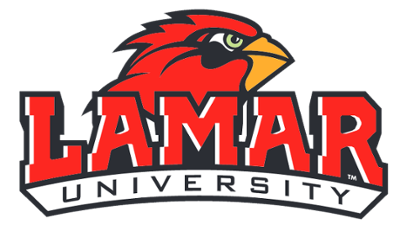
Points: 5
Program Website
Lamar University is a public space-grant university and a top choice for students seeking an affordable combined degree in the field of engineering. Lamar’s Department of Civil Engineering confers a low-cost 4+1 bachelor’s to master’s degree program that allows students to earn a cheap BS in Civil Engineering and an MS in Environmental Studies or Environmental Engineering in as few as five years. The curriculum consists of advanced undergraduate and graduate work and allows students to begin taking master’s-level classes during their senior year of undergraduate studies. Students may also choose an area of specialization and select courses from their own field. Lamar offers venues in which undergraduates have the opportunity to interact with industry professionals.
In-State Tuition: $8,373
Out-of-State Tuition: $18,333
Student-to-Faculty Ratio: 18:1
Graduation Rate: 27 percent
38. Creighton University
Omaha, Nebraska
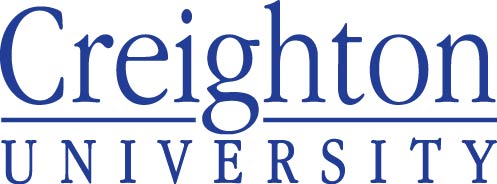
Points: 6
Program Website
Established in 1878 by the Society of Jesus as Creighton College, Creighton University is a private Jesuit institution of higher education and a “Best Value” school, according to U.S. News & World Report. Creighton offers 23 affordable accelerated 4+1 bachelor’s to master’s spread across six fields: justice and society, health and wellness, English and communication studies, business, leadership and science. Once accepted into a high-value program, students earn between nine and 12 credit hours to put toward their master’s, which is, in some cases, nearly halfway toward a full graduate-level degree. Students may also be eligible to apply their undergraduate scholarship toward their graduate coursework until the end of their fourth academic year. Creighton indicates that students save approximately $10,000 by completing the school’s combined 4+1 program.
In-State Tuition: $39,916
Out-of-State Tuition: $39,916
Student-to-Faculty Ratio: 11:1
Graduation Rate: 81 percent
37. Regis University
Denver, Colorado

Points: 6
Program Website
Founded in 1877 as Las Vegas College, Regis University is a high-value private university affiliated with the Roman Catholic Church and a member of the Association of Jesuit Colleges and Universities. Regis confers a number of cost-effective 4+1 bachelor’s to master’s degree programs that allow students to earn a graduate degree with increased affordability and at a faster pace. Students may choose from more than 25 combined programs in areas such as computer and information sciences, business and contemporary liberal studies. The specific number of graduate courses that students may apply toward their bachelor’s degree varies by program, but all students are able to reduce the overall credits required to earn both their degrees.
In-State Tuition: $36,810
Out-of-State Tuition: $36,810
Student-to-Faculty Ratio: 14:1
Graduation Rate: 69 percent
36. Dallas Baptist University
Dallas, Texas
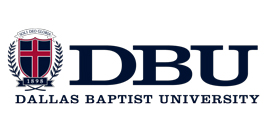
Points: 6
Program Website
Dallas Baptist University, founded as Decatur Baptist College in 1898, is a Christian liberal arts university that operates campuses in Dallas, Hurst and Plano. DBU confers more than 70 affordable accelerated 4+1 bachelor’s to master’s degrees in areas such as business, Christian faith, education, fine arts, humanities and social sciences, natural sciences and mathematics, professional studies and leadership. The accelerated format of these top-value degree programs allows undergraduates to complete graduate-level coursework and apply these credits toward their bachelor’s degree to earn both degrees within five years. The school is most known for its College of Christian Faith that offers economical undergraduate programs in biblical studies, intercultural studies and Christian studies that can be combined with graduate-level degrees in ministry, leadership, discipleship, counseling, worship and theology.
In-State Tuition: $28,870
Out-of-State Tuition: $28,870
Student-to-Faculty Ratio: 13:1
Graduation Rate: 53 percent
35. Webster University
St. Louis, Missouri
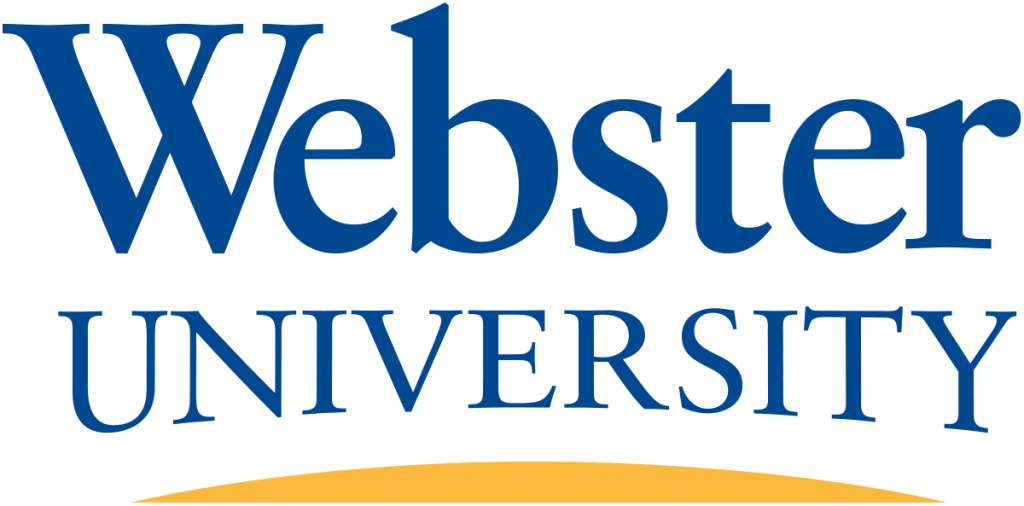
Points: 6
Program Website
With an alumni network of more than 170,000 graduates worldwide, Webster University is a nonprofit private institution of higher learning that operates multiple campuses across the country. A solid choice for an economical 4+1 bachelor’s to master’s degree program, Webster allows students to combine undergraduate-level studies with any graduate program in advertising and marketing communications, gerontology, human resources development, public relations, media communications, business administration, management and leadership, international relations and marketing. In addition, Webster offers several affordable specialized combined degrees, including a B.S. in Accounting and an M.S. in Finance or Forensic Accounting, a B.S. in Computer Science with an emphasis in cybersecurity and an M.S. in Cybersecurity and three B.A. in Education degrees that can be combined with an M.A. in Teaching English as a Second Language.
In-State Tuition: $27,900
Out-of-State Tuition: $27,900
Student-to-Faculty Ratio: 12:1
Graduation Rate: 59 percent
34. Saint Leo University
Saint Leo, Florida
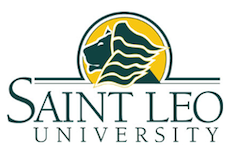
Points: 6
Program Website
Saint Leo University is a private Roman Catholic liberal arts university associated with Saint Leo Abbey and the Holy Name Monastery. Established in 1889, Saint Leo offers three high-value 3+1 accelerated bachelor’s to master’s degree programs: a Bachelor of Arts in Management or a Bachelor of Arts in Marketing, both with a Master of Business Administration, and a Bachelor of Science in Computer Science with a Master of Science in Cybersecurity. Students can earn both their bachelor’s and master’s degrees within three years by taking 40 to 41 credit hours per year. These high-value degree programs are only available on-campus and are not offered online. No entrance examinations are required for the master’s degree, and 4+1 students are given preferential admission to the graduate program. Those who earn both degrees are able to enter the workforce earlier, and they benefit from increased earning potential and better career opportunities.
In-State Tuition: $23,020
Out-of-State Tuition: $23,020
Student-to-Faculty Ratio: 14:1
Graduation Rate: 51 percent
Featured Programs
33. Western Kentucky University
Bowling Green, Kentucky
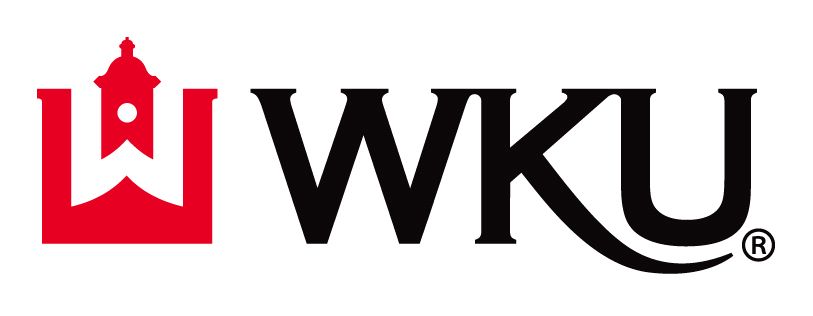
Points: 6
Program Website
Western Kentucky University is a public institution of higher learning that was founded in 1906 by the Commonwealth of Kentucky. WKU’s Department of Psychological Sciences confers an affordable Joint Undergraduate-Master’s Program (JUMP), the only department in the state to offer this accelerated, unique and low-cost degree program in the field of psychology. The five-year curriculum consists of inexpensive undergraduate courses designed to fulfill the bachelor’s requirements as well as graduate classes that can be applied to both the bachelor’s and master’s degrees. Students also have opportunities for accelerated learning as they work with faculty members on psychological science-based research projects. Students are encouraged to apply after completing 45 hours but before completing 65 hours of undergraduate program requirements.
In-State Tuition: $10,512
Out-of-State Tuition: $26,280
Student-to-Faculty Ratio: 18:1
Graduation Rate: 45 percent
32. St. Joseph’s College
Brooklyn, New York
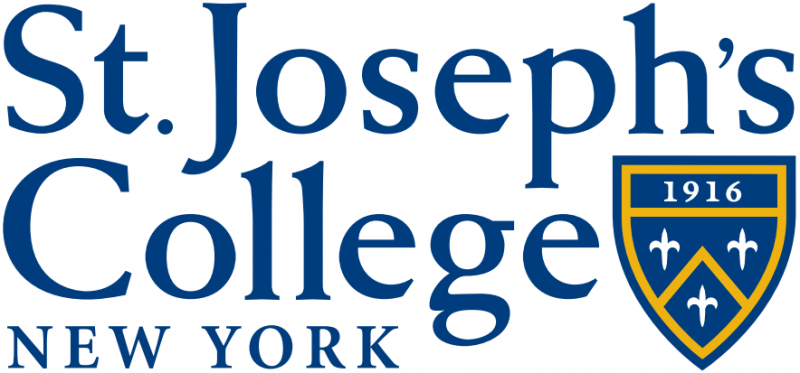
Points: 7
Program Website
An affordable college for an accelerated 4+1 bachelor’s to master’s degree program, St. Joseph’s College is a private liberal arts institution of higher education in New York State with campuses in Brooklyn, Long Island and online. Top-ranked by Forbes and U.S. News & World Report as one of the top colleges in the country, SJC confers more than 10 low-cost dual-degree programs in areas such as psychology, mathematics, education, accounting, computer information technology and criminal justice as well as health administration, human services and organizational management. Students benefit from personalized counseling, flexible scheduling, expert faculty with small classes, affordable tuition and relevant, hands-on courses.
In-State Tuition: $27,830
Out-of-State Tuition: $27,830
Student-to-Faculty Ratio: 9:1
Graduation Rate: 61 percent
31. Rutgers University-New Brunswick
New Brunswick, New Jersey
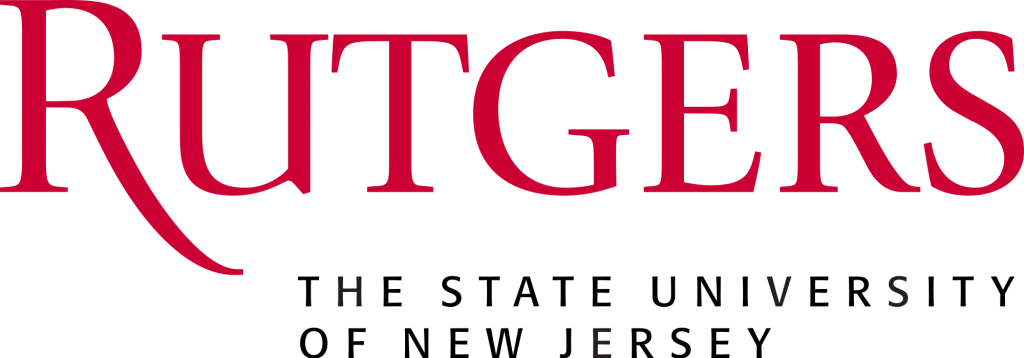
Points: 7
Program Website
Originally chartered as Queen’s College in 1766, Rutgers, The State University of New Jersey is the eighth-oldest institution of higher learning in the nation and one of nine colonial colleges founded before the American Revolution. Students looking for a high-value 4+1 bachelor’s to master’s program can choose from several options, including low-cost combined degrees in criminal justice, planning and public policy, public health, engineering and the liberal arts/sciences, religion, accounting, clinical nutrition, business and law. Program requirements and time to completion will depend on the specific pathway chosen. A five-year teacher certification program and a 3+3 B.A./J.D. are also available.
In-State Tuition: $14,974
Out-of-State Tuition: $31,282
Student-to-Faculty Ratio: 16:1
Graduation Rate: 80 percent
30. Central Michigan University Global Campus
Mount Pleasant, Michigan
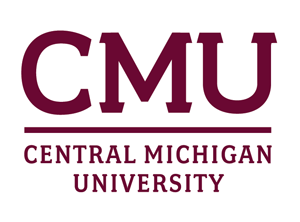
Points: 7
Program Website
Established in 1892, Central Michigan University is one of the largest and most affordable institutions of higher learning in the state. In addition to operating a main campus, more than 7,000 students enroll online through CMU’s Global Campus at more than 60 locations worldwide. CMU offers several best-value accelerated 4+1 bachelor’s to master’s degree programs, including bachelor’s degrees in administration, community development and integrated leadership studies that can be paired with a Master of Science in Administration. Students following this pathway are able to choose the MSA concentration that best fits their career goals. In addition, students majoring in entrepreneurship may choose to complete six courses of Master of Entrepreneurial Ventures coursework during the final year of the undergraduate program.
In-State Tuition: $12,960
Out-of-State Tuition: $24,120
Student-to-Faculty Ratio: 20:1
Graduation Rate: 62 percent
29. Northern Arizona University
Flagstaff, Arizona
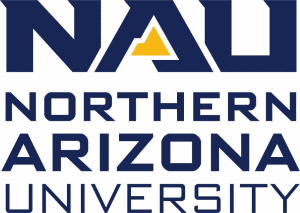
Points: 7
Program Website
Established in 1899, Northern Arizona University is a public research institution of higher learning that offers 95 undergraduate degrees, 76 graduate degrees and nearly 80 certificates to more than 30,700 students each year. NAU offers six affordable and accelerated bachelor’s to master’s degree programs that allow students to begin graduate studies while simultaneously completing their undergraduate program requirements. Inexpensive fields of study include athletic training, criminology and criminal justice, communication and business administration as well as forestry, English, education, sustainable communities and psychological sciences, to name a few. Three low-cost accelerated 4+1 engineering degrees are available in civil and environmental, electrical and mechanical engineering. Requirements for admission and completion depend on the specific degree chosen.
In-State Tuition: $11,564
Out-of-State Tuition: $25,828
Student-to-Faculty Ratio: 19:1
Graduation Rate: 52 percent
28. Oregon State University
Corvallis, Oregon
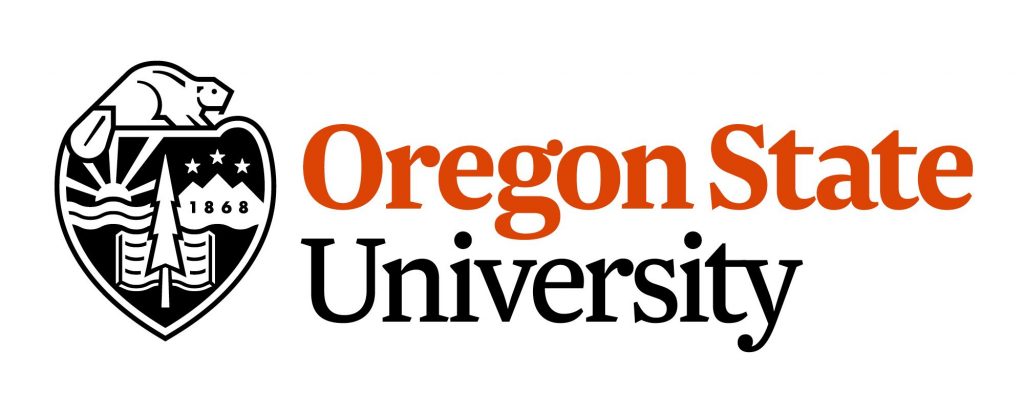
Points: 7
Program Website
Oregon State University is a public sun-, space-, sea- and land-grant institution of higher learning that was established in 1868. With more than 32,000 undergraduate and graduate students, it is the largest university in the state. OSU offers 20 inexpensive degree programs that participate in the accelerated master’s platform, including degrees ranging from business administration, engineering and computer science to environmental science, toxicology and robotics. Other popular fields of study include microbiology, public health, materials science, horticulture and natural resources. Through this pathway, undergraduates are eligible to complete up to 12 graduate-level credits and apply them to their bachelor’s degrees before transferring to a master’s-level program. With careful planning, OSU students may complete both degrees within five years of study.
In-State Tuition: $11,166
Out-of-State Tuition: $30,141
Student-to-Faculty Ratio: 17:1
Graduation Rate: 67 percent
27. California University of Pennsylvania
California, Pennsylvania
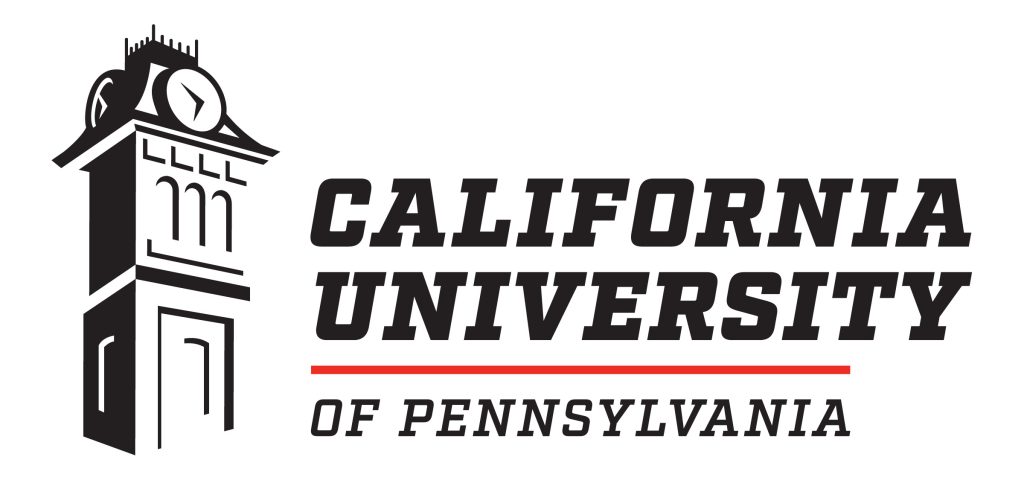
Points: 7
Program Website
Founded in 1852, California University of Pennsylvania is a public university and a member of the Pennsylvania State System of Higher Education (PASSHE). Cal U offers several top-value 4+1 bachelor’s to master’s degrees that allow undergraduates to take up to 12 credits of graduate-level coursework in their junior year. Students who follow this affordable degree program will have completed 40% of the 30-credit master’s degree requirements before officially graduating with their bachelor’s degree. Bachelor’s programs are available in Arabic, business administration, criminal justice, psychology, sociology and professional studies in education. Master’s degrees are offered in Arabic, business administration, criminology, clinical mental health counseling, school psychology, school counseling and conflict resolution.
In-State Tuition: $11,108
Out-of-State Tuition: $15,726
Student-to-Faculty Ratio: 18:1
Graduation Rate: 53 percent
26. University of Cincinnati
Cincinnati, Ohio

Points: 7
Program Website
Founded as Cincinnati College in 1819, the University of Cincinnati is a public research university and the oldest institution of higher learning in the city. With an annual enrollment of more than 45,900 undergraduate and graduate students, it is the second-largest university in the state. A member of the University System of Ohio, Cincinnati offers several opportunities for undergraduates to earn an affordable accelerated 4+1 bachelor’s to master’s degree. Although the structure of these high-value degree programs varies, most require four years of coursework leading to a bachelor’s degree, followed by one year of graduate-level classes. Students may pursue an accelerated and inexpensive engineering program in the form of a bachelor’s in engineering plus a master’s in engineering, education or business. Other options include accelerated undergraduate degrees in communication sciences and disorders, nutrition and health sciences as well as 4+1 programs in social work, business and information technology.
In-State Tuition: $11,000
Out-of-State Tuition: $27,334
Student-to-Faculty Ratio: 16:1
Graduation Rate: 68 percent
Featured Programs
25. Arizona State University
Tempe, Arizona

Points: 7
Program Website
Established in 1885, Arizona State University is a public metropolitan research university and one of the largest public institutions of higher learning by enrollment in the nation. ASU confers more than 350 undergraduate degrees as well as more than 400 graduate degrees and certificates. ASU students may accelerate their studies by completing a bachelor’s and a master’s in as few as five years rather than the typical six. These affordable combined degree programs feature the same high-quality coursework taught by renowned faculty members and are designed for students looking to save time and money. ASU offers 95 inexpensive accelerated degree options, each of which consists of its own admission and completion requirements. Fields of study include engineering, American Indian studies, communication studies, computer science and computer resources and development as well as criminology and criminal justice, information technology, global health, public administration and sustainability solutions, to name a few.
In-State Tuition: $10,822
Out-of-State Tuition: $28,336
Student-to-Faculty Ratio: 19:1
Graduation Rate: 69 percent
24. University of Alabama
Birmingham, Alabama

Points: 7
Program Website
The University of Alabama, established in 1820, is the oldest and largest of the public institutions of higher learning in the state as well as the flagship campus of the University of Alabama System. UA offers several affordable accelerated 4+1 bachelor’s to master’s degrees that allow undergraduates to apply up to 12 hours of graduate-level courses toward their bachelor’s and master’s programs. Currently, UA offers four combined high-value degrees that lead to a master’s: a Master of Science in Biology, a Master of Science in Computer Science, an MS in Multidisciplinary Biomedical Science and a Master of Public Health. Undergraduates are eligible to begin the accelerated program once they have completed a minimum of 60 hours of undergraduate coursework, at least 36 of which must be taken at UA.
In-State Tuition: $10,780
Out-of-State Tuition: $29,230
Student-to-Faculty Ratio: 22:1
Graduation Rate: 72 percent
23. The Ohio State University
Columbus, Ohio

Points: 7
Program Website
The Ohio State University is a public research university that was founded in 1870 as the Ohio Agricultural and Mechanical College, a land-grant institution of higher education. While OSU initially focused on various mechanical and agricultural disciplines, it later developed into a comprehensive university and a top choice for students seeking a low-cost 4+1 bachelor’s to master’s degree program. OSU offers affordable combined degree programs that allow students to earn two degrees and thus reduce the time and money required to complete both sets of requirements. At the professional level, cheap accelerated degree programs are available in veterinary medicine, pharmacy, optometry, medicine, law and dentistry. In addition, the following undergraduate schools and colleges offer affordable accelerated 4+1 bachelor’s to master’s degree programs: Public Health, Nursing, Health and Rehabilitation Sciences, Environment and Natural Resources, Engineering, Education and Human Ecology, Arts and Sciences, Business and Agriculture.
In-State Tuition: $10,726
Out-of-State Tuition: $30,742
Student-to-Faculty Ratio: 19:1
Graduation Rate: 84 percent
22. Indiana University
Bloomington, Indiana
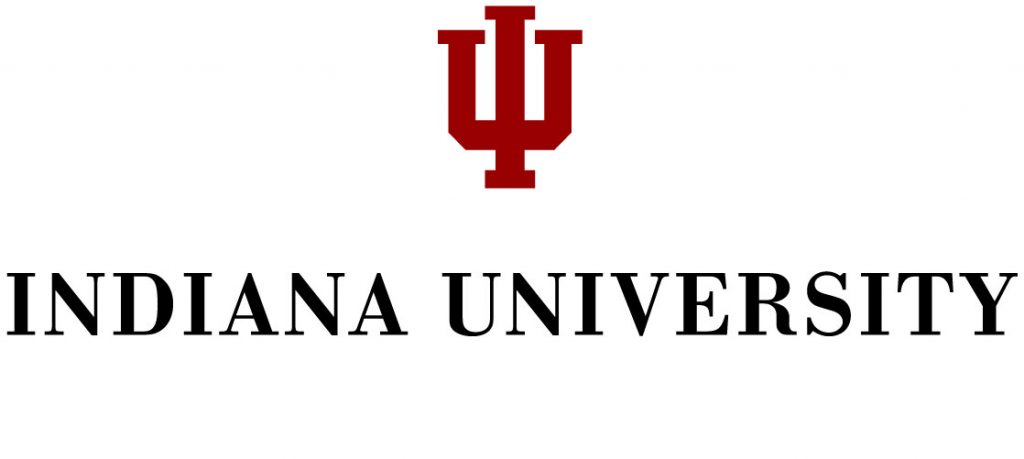
Points: 7
Program Website
Established in 1820, Indiana University is a public research university and the flagship campus of the Indiana University System. Students looking to earn a high-value 4+1 bachelor’s to master’s degrees can choose from three options offered through the O’Neill School of Public and Environmental Affairs: a low-cost Master of Science in Environmental Science (MSES), Master of Public Affairs (MPA) or a dual MPA-MSES degree. Depending on eligibility, some graduate-level classes may count for both undergraduate and graduate degree requirements, allowing students may complete both a bachelor’s and a master’s degree in just five years. Interested students must be on track to complete all internship, general education, certificate, minor and thesis requirements before beginning the accelerated master’s degree program.
In-State Tuition: $10,681
Out-of-State Tuition: $35,456
Student-to-Faculty Ratio: 16:1
Graduation Rate: 78 percent
21. Old Dominion University
Norfolk, Virginia

Points: 7
Program Website
Old Dominion University is a public research university that began as the Norfolk Division of the College of William & Mary in 1930. Today, ODU is one of the largest universities by enrollment in the state, educating nearly 24,200 students per year. ODU’s Frank Batten College of Engineering and Technology offers an inexpensive accelerated 4+1 bachelor’s to master’s degree program that results in a Bachelor of Science and Master of Science. Students can choose a graduate-level degree in the same field as their bachelor’s degrees or in a related discipline. ODU allows undergraduates to count up to six hours of coursework toward both the bachelor’s and master’s degrees. Students following this pathway can complete their undergraduate requirements in four years and their graduate requirements in one year. ODU’s affordable accelerated degree programs provide unique opportunities for students to participate in academic, governmental and industrial research projects in areas of engineering technology and engineering where there is a demand for advanced technical knowledge.
In-State Tuition: $10,560
Out-of-State Tuition: $29,460
Student-to-Faculty Ratio: 17:1
Graduation Rate: 52 percent
20. Kansas State University
Manhattan, Kansas
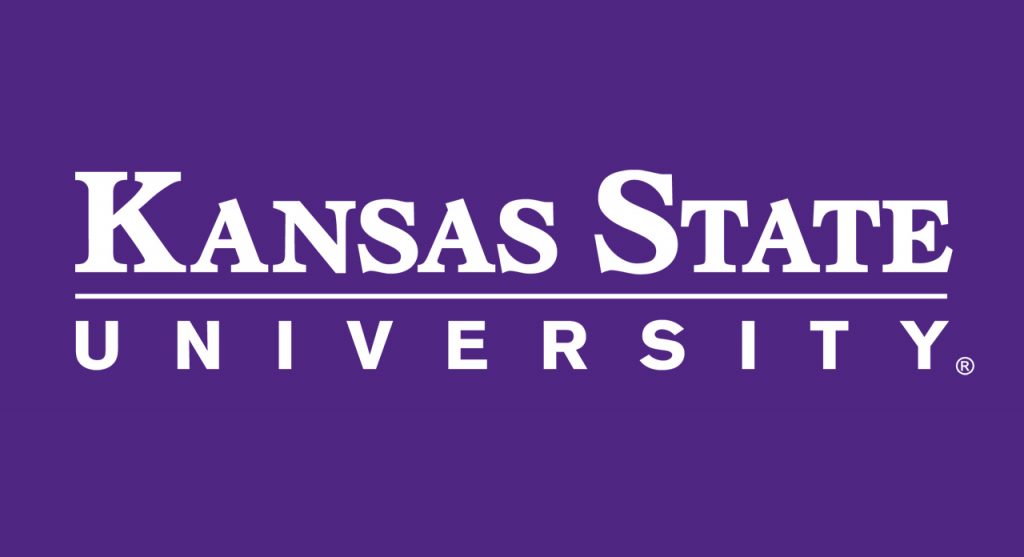
Points: 7
Program Website
Kansas State University is a public land-grant and space-grant institution of higher education and the first public university in the state. Established in 1863, KSU is comprised of nine colleges that offer undergraduate and graduate degrees to more than 21,700 students each year. KSU confers more than 30 affordable 4+1 bachelor’s to master’s degree programs in disciplines such as accounting, agricultural economics, architectural engineering, biochemistry, biological and agricultural engineering, biology and business administration. Other high-value accelerated areas of study include economics, horticulture, hospitality administration and management, human nutrition and industrial engineering, to name a few. Each cheap accelerated degree program consists of its own admission and completion requirements as well as various time to completion dates, but most degrees allow students to apply graduate-level coursework to both their bachelor’s and master’s degrees to graduate up to one year early.
In-State Tuition: $10,383
Out-of-State Tuition: $25,887
Student-to-Faculty Ratio: 18:1
Graduation Rate: 64 percent
19. Eastern Kentucky University
Richond, Kentucky
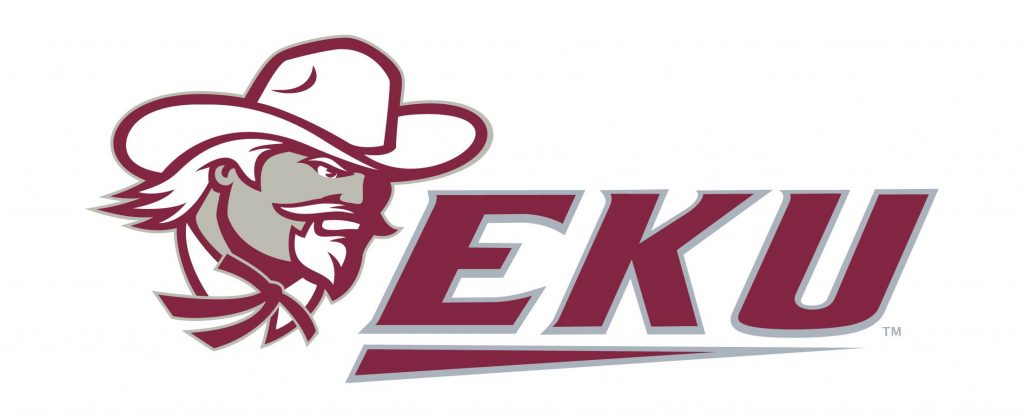
Points: 7
Program Website
Students looking to attend an affordable university for an accelerated 4+1 bachelor’s to master’s degree program may consider Eastern Kentucky University, a public institution of higher learning that maintains branch campuses across Kentucky and enrolls 15,800 students each year. Specifically, EKU offers an accelerated and cheap 3+2 dual degree in which students may earn a Bachelor of Arts in English within three years and a Master of Arts in English within an additional two years. Faculty members concentrate primarily on effective teaching, but they also include a number of successful and active scholars and writers, including internationally renowned novelists. By following EKU’s low-cost accelerated degree pathway, students are able to save both time and money and enter their chosen careers sooner than if they were to complete the B.A. and M.A. in English degrees separately.
In-State Tuition: $9,666
Out-of-State Tuition: $19,444
Student-to-Faculty Ratio: 15:1
Graduation Rate: 47 percent
18. North Dakota State University
Fargo, North Dakota

Points: 7
Program Website
Founded in 1890 as North Dakota Agricultural College, North Dakota State University is a public research institution of higher education that enrolls more than 13,100 undergraduate and graduate students each year, making it one of the largest universities in the state. A member of the North Dakota University System, NDSU offers affordable accelerated, combined degree programs for eligible students looking to earn both a bachelor’s and a master’s degree in a timely, quality, and cost-effective manner. Available disciplines include agribusiness, agricultural economics, biological sciences, computer engineering and computer science as well as criminal justice, dietetics, economics and electrical engineering. Other popular inexpensive 4+1 programs include degrees in human development and family science, food science, physics and mechanical engineering. Students must apply to the accelerated program and, once admitted, can apply up to 15 credits of graduate-level coursework to meet the bachelor’s degree requirements.
In-State Tuition: $9,414
Out-of-State Tuition: $13,393
Student-to-Faculty Ratio: 19:1
Graduation Rate: 58 percent
17. University of Memphis
Memphis, Tennessee

Points: 7
Program Website
The University of Memphis is a public research university that enrolls more than 22,000 students each year. Founded in 1912, the school is accredited to award doctoral, educational specialist, master’s, first professional and bachelor’s degrees. Honors students are invited to pursue one of more than 21 cheap accelerated 4+1 bachelor’s to master’s degree programs that are designed to provide additional credentials before students begin their careers. Available disciplines include biology, engineering, finance and health studies as well as liberal studies, nursing, public health, sport and leisure management, information systems and political science. Although each best-value degree program consists of its own completion requirements, all AB students may earn up to 12 graduate credit hours that they may then apply to both their undergraduate and graduate degrees.
In-State Tuition: $9,317
Out-of-State Tuition: $21,029
Student-to-Faculty Ratio: 15:1
Graduation Rate: 48 percent
16. Texas Tech University
Lubbock, Texas

Points: 7
Program Website
Established in 1923 as Texas Technological College, Texas Tech University is a public research university and the main campus of the four-school Texas Tech University System. Texas Tech confers a high-quality, affordable 4+1 bachelor’s to master’s degree in human factors psychology that utilizes a face-to-face, traditional curriculum of hands-on experience, mentoring and coursework. Students who complete this high-value degree program will earn both a Bachelor of Arts in Psychology and a Master of Arts in General Experimental Psychology with a human factors concentration. The low-cost combined degree program strongly emphasizes data analysis skills and research methodology, preparing professionals to apply what they have learned about the capabilities and limits of human behavior to the design of environments, jobs, systems, tools and machines. Undergraduates are eligible to begin graduate-level courses during their fourth year of study and complete both the bachelor’s and the master’s degrees in approximately five years.
In-State Tuition: $9,080
Out-of-State Tuition: $19,040
Student-to-Faculty Ratio: 20:1
Graduation Rate: 60 percent
15. West Virginia University
Morgantown, West Virginia
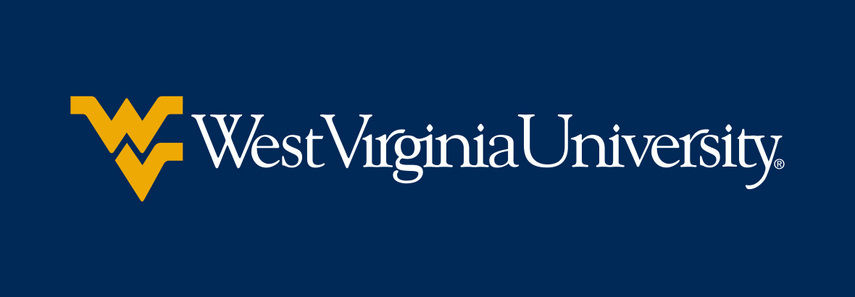
Points: 7
Program Website
Established in 1867 as the Agricultural College of West Virginia, West Virginia University is a public space-grant, land-grant, research-intensive institution of higher education. WVU students may pursue an affordable accelerated 4+1 bachelor’s to master’s degree in sport management by completing traditional undergraduate requirements as well as an additional 12 credits that are shared across the bachelor’s and master’s programs. These four classes cover areas such as sport finance, sociocultural and ethical dimensions in sport, legal issues in sports administration and sport management processes. The bachelor’s curriculum provides students with the experiences and knowledge necessary to gain entry-level employment in the sports industry, while the master’s curriculum helps students advance within the field. Both economical degrees provide students with coursework that is approved by the Commission on Sport Management Accreditation.
In-State Tuition: $8,856
Out-of-State Tuition: $24,950
Student-to-Faculty Ratio: 18:1
Graduation Rate: 60 percent
14. University of North Dakota
Grand Forks, North Dakota

Points: 7
Program Website
The University of North Dakota is a public space-grant, research-intensive university that was founded in 1883 by the Dakota Territorial Assembly, just six years before the establishment of North Dakota. The oldest institution of higher education in the state, UND initially focused on the liberal arts but has since expanded to include scientific research and house the only schools of medicine and law in North Dakota. UND offers more than 15 inexpensive combined bachelor’s and master’s degree programs in disciplines such as accounting, atmospheric sciences, engineering, computer science, dietetics, education, economics, geology, physics, psychology, public health and rehabilitation/human services. Specific program requirements will vary according to the combined degree, but all students are eligible to complete graduate-level coursework during their undergraduate degree and graduate sooner than if they were to pursue each program separately.
In-State Tuition: $8,695
Out-of-State Tuition: $20,759
Student-to-Faculty Ratio: 18:1
Graduation Rate: 55 percent
13. Mississippi State University
Starkville, Mississippi
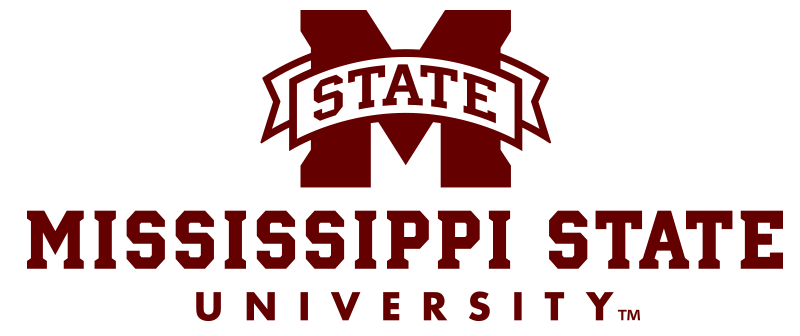
Points: 7
Program Website
Mississippi State University is a public land-, sea- and space-grant institution of higher learning. Established in 1878 as Mississippi Agricultural & Mechanical College, the school is organized into 12 schools and colleges that provide more than 180 top-value degree programs. The Bagley College of Engineering at MSU offers eight distinct inexpensive accelerated bachelor’s to master’s degree programs for students looking to save time and money. MSU confers best-value accelerated degree programs in aerospace engineering, chemical engineering, mechanical engineering and computer science engineering as well as electrical and computer engineering, a Master of Engineering and two low-cost degree programs in industrial and systems engineering leading that can be combined with either a Master of Science and a Master of Business Administration. These economical degree programs allow undergraduates to apply up to nine credit hours of their Bachelor of Science degree toward a Master of Science degree. All students must apply and be admitted into a 4+1 program before enrolling in master’s-level courses.
In-State Tuition: $8,650
Out-of-State Tuition: $23,250
Student-to-Faculty Ratio: 17:1
Graduation Rate: 58 percent
12. Brenau University
Gainesville, Florida

Points: 8
Program Website
Founded in 1878, Brenau University is a private institution of higher learning and a popular choice for students seeking an affordable accelerated 4+1 bachelor’s to master’s degree program in interior design. Brenau offers a high-value combined Bachelor of Fine Arts (B.F.A.) and Master of Interior Design (M.I.D.) in Interior Design that is accredited by the Council for Interior Design Accreditation (CIDA). The economical bachelor’s and master’s degrees are awarded simultaneously; students may not earn just a B.F.A. in Interior Design. Graduates are prepared for advanced study, entry-level interior design practice and to apply for membership in professional organizations in the field of interior design. Students may also choose to sit for the National Council for Interior Design Qualification (NCIDQ) examination.
In-State Tuition: $29,050
Out-of-State Tuition: $29,050
Student-to-Faculty Ratio: 10:1
Graduation Rate: 41 percent
Featured Programs
11. University of Arizona
Tucson, Arizona
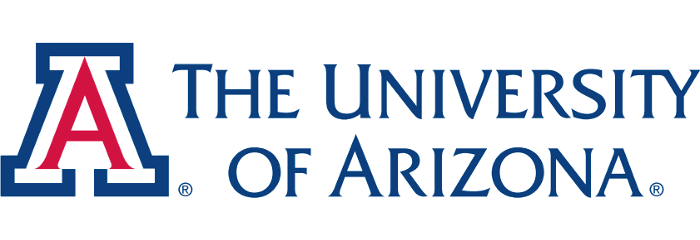
Points: 8
Program Website
Founded in 1885, the University of Arizona is a public research university and a top choice for students seeking an affordable accelerated 4+1 bachelor’s to master’s degree program. The flagship institution of Arizona, UA offers inexpensive graduate-level degrees in more than 150 areas of study, including more than 50 combined bachelor’s and master’s programs. Available disciplines for the low-cost accelerated master’s programs (AMPs) include engineering, agriculture, public health, communication, computer science, environmental science, finance, marketing, philosophy, public policy and management, to name a few. Each best-value degree program consists of its own admission and degree completion requirements, but all AMP students are eligible to apply a specific number of graduate-level credits toward their bachelor’s and master’s degree to save time and money.
In-State Tuition: $12,467
Out-of-State Tuition: $36,366
Student-to-Faculty Ratio: 15:1
Graduation Rate: 64 percent
10. University of Louisville
Louisville, Kentucky

Points: 8
Program Website
Established as Jefferson Seminary in 1798, the University of Louisville is a public institution of higher education and a member of the Kentucky State University System. It was the first city-owned public university in the nation and one of the first institutions chartered west of the Allegheny Mountains. Today, U of L offers a top-value, affordable 4+1 bachelor’s to master’s degree in biology for students looking to save time and money by earning two degrees. U of L students can apply for a non-thesis Master of Science in Biology degree and complete nine hours of graduate-level coursework while pursuing their undergraduate degree. Students interested in this economical degree pathway are encouraged to apply while in their junior year. Graduates are prepared for doctoral studies as well as for employment in government positions and research in the pharmaceutical industry.
In-State Tuition: $11,656
Out-of-State Tuition: $27,278
Student-to-Faculty Ratio: 14:1
Graduation Rate: 57 percent
9. New Mexico State University
Las Cruces, New Mexico
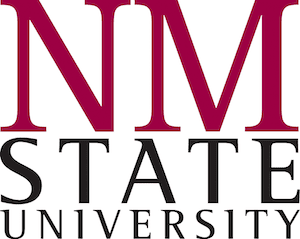
Points: 8
Program Website
New Mexico State University is a public land- and space-grant university that was founded in 1888, making it the oldest public institution of higher learning in the state. One of only two flagship universities in New Mexico, NMSU enrolls more than 21,800 undergraduate and graduate students across all of its campuses. Students seeking an inexpensive accelerated 4+1 bachelor’s to master’s degree program can share up to 12 credits of graduate-level coursework between their bachelor’s and master’s degrees. Although program requirements vary, most students need only one year after earning their affordable BA or BS degree to complete a master’s degree. Each academic department at NMSU decides whether it wishes to participate in the MAP program, so interested students are encouraged to research the school’s combined degree offerings.
In-State Tuition: $6,686
Out-of-State Tuition: $21,770
Student-to-Faculty Ratio: 17:1
Graduation Rate: 47 percent
8. Kennesaw State University
Kennesaw, Georgia
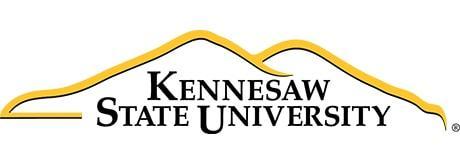
Points: 8
Program Website
Established in 1963, Kennesaw State University is a public institution of higher education with campuses in Kennesaw and Marietta. A member of the University System of Georgia, KSU is a leader in innovative learning and teaching that enrolls more than 35,000 undergraduate and graduate students from 92 countries, making it the third-largest university in the state and one of the 50 largest public institutions in the country. KSU’s School of Conflict Management, Peacebuilding and Development offers a cheap accelerated bachelor’s to master’s degree option in which students are eligible to begin graduate-level coursework during their senior year of undergraduate studies. Students may apply up to nine credit hours of master’s courses to meet the requirements of both programs as long as they complete 150 unique hours between the two.
In-State Tuition: $6,347
Out-of-State Tuition: $17,329
Student-to-Faculty Ratio: 21:1
Graduation Rate: 43 percent
7. Missouri State University
Springfield, Missouri

Points: 9
Program Website
Established as the Fourth District Normal School in 1905, Missouri State University, formerly Southwest Missouri State University, is a public institution of higher learning and the second-largest university by enrollment in the state. Students seeking an affordable accelerated 4+1 bachelor’s to master’s degree are eligible to jump-start their graduate education by completing master’s-level coursework as they work toward their bachelor’s degrees. MSU offers more than 35 affordable graduate programs with an accelerated option, including degrees in accountancy, agriculture, business, cybersecurity, education, health administration, public administration, religious studies, public health and project management, to name a few. Depending on the high-value degree program chosen, undergraduates may apply six to 12 credit hours of graduate coursework toward their bachelor’s and master’s degrees.
In-State Tuition: $7,376
Out-of-State Tuition: $15,326
Student-to-Faculty Ratio: 21:1
Graduation Rate: 54 percent
6. University of North Carolina at Greensboro
Greensboro, North Carolina
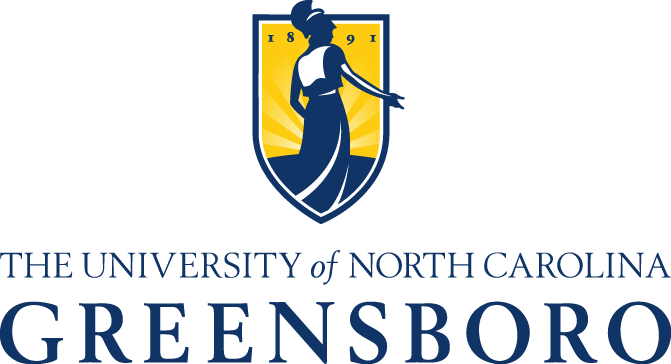
Points: 9
Program Website
The University of North Carolina at Greensboro is a public research university and a constituent campus of the University of North Carolina System. Established in 1891 as the State Normal and Industrial School, UNCG is a top choice for undergraduates seeking an affordable accelerated 4+1 bachelor’s to master’s degree. UNCG offers cheap degree programs in disciplines such as mathematics, accounting, biology, chemistry, economics, political science and exercise/sport science. In addition, undergraduates may combine a bachelor’s in anthropology, economics or political science with a master’s in economics. Many students choose to combine a master’s degree in business administration with a bachelor’s in anthropology, Spanish, political science, physics, music, German, French, chemistry or business administration. Although formal admission is usually given in the junior or senior year, freshmen and sophomores are encouraged to carefully select undergraduate courses to ensure their coursework aligns with the accelerated program requirements.
In-State Tuition: $7,331
Out-of-State Tuition: $22,490
Student-to-Faculty Ratio: 17:1
Graduation Rate: 53 percent
5. East Carolina University
Greenville, North Carolina
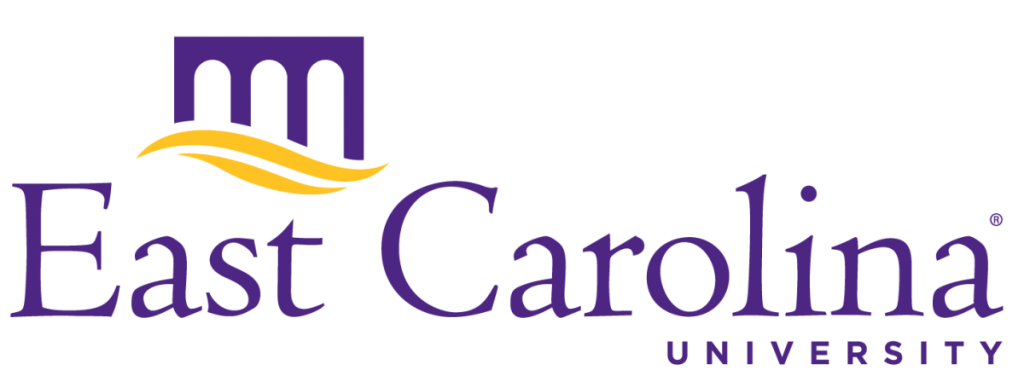
Points: 9
Program Website
One of the most affordable universities for an accelerated 4+1 bachelor’s to master’s degree in chemistry, East Carolina University is a public research institution of higher education and the fourth-largest university by enrollment in the state. Founded as a teacher training school in 1907, ECU offers an opportunity for students pursuing a high-value BS in Chemistry to earn an MS in Chemistry in just two or three additional semesters of study, thus reducing the time and money needed for both degrees. Undergraduates are encouraged to begin research projects while earning their bachelor’s degree and complete advanced graduate-level coursework that can waive a portion of the master’s requirements. Seniors are granted early admission into the M.S. program and are eligible to receive paid teaching assistantships. Applications should be submitted during the first semester of the student’s final year of undergraduate study.
In-State Tuition: $7,188
Out-of-State Tuition: $23,465
Student-to-Faculty Ratio: 18:1
Graduation Rate: 65 percent
4. Florida International University
Miami, Florida

Points: 9
Program Website
Established in 1965, Florida International University is a public research university that operates two major campuses in Miami-Dade County. FIU is a member of the 12-campus State University System of Florida and one of the primary graduate research universities in the state. FIU offers seven combined Bachelor of Arts or Bachelor of Science and Master of Science degrees in recreation and sport management, environmental studies, chemistry, geosciences, mathematical sciences and statistics. Although specific program requirements will vary, students who wish to be considered for admission to a combined bachelor’s/master’s program must complete a minimum of 75 to 90 credits in a bachelor’s degree at FIU and meet the graduate program’s admission requirements for the degree to which they are applying.
In-State Tuition: $6,546
Out-of-State Tuition: $18,954
Student-to-Faculty Ratio: 26:1
Graduation Rate: 58 percent
3. University of South Florida
Tampa, Florida
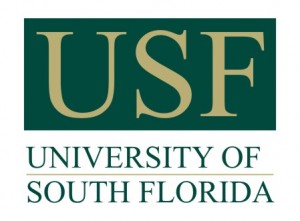
Points: 9
Program Website
A member of the State University System of Florida, the University of South Florida is a public space-grant and research university that operates three campuses: USF Tampa, USF Sarasota-Manatee and USF St. Petersburg. Founded in 1956, USF is the fourth-largest public institution of higher learning the state, enrolling more than 50,700 undergraduate and graduate students each year. USF offers several affordable programs that allow students to complete a best-value bachelor’s degree and a master’s degree on an accelerated timeline. In most cases, undergraduates complete a portion of graduate-level coursework and apply these credits to both degrees. Available areas of study for a cheap combined degree program include advertising, religious studies, mathematics, microbiology, business, management information systems, rehabilitation and mental health counseling, biomedical sciences, chemistry, interdisciplinary natural science, engineering and nursing. Most programs are offered in a 3+2 format, meaning that students spend three years completing the undergraduate requirements and two years completing the graduate requirements.
In-State Tuition: $6,410
Out-of-State Tuition: $17,324
Student-to-Faculty Ratio: 22:1
Graduation Rate: 73 percent
2. University of Florida
Gainesville, Florida

Points: 9
Program Website
One of the most affordable universities for an accelerated 4+1 bachelor’s to master’s program, the University of Florida is a public land-, sea-, and space-grant research university and a senior member of the State University System of Florida. Established in 1853, UF offers an assortment of low-cost combined degrees that allow undergraduates to obtain both a bachelor’s and a master’s degree at an accelerated pace and reduced tuition rate. In most programs, students may apply up to 12 credit hours of graduate work completed during their junior and senior years toward their bachelor’s degree. Available fields of study for a cheap combined degrees at UF include accounting, agriculture, biology, fisheries and aquatic sciences, food and resource economics, forest resources and conservation, marine sciences, business administration, construction management and engineering, to name a few. More than 80 inexpensive degree programs are available, so prospective students are sure to find an educational path that meets their future career goals.
In-State Tuition: $6,381
Out-of-State Tuition: $28,659
Student-to-Faculty Ratio: 18:1
Graduation Rate: 90 percent
1. University of Central Florida
Orlando, Florida
The University of Central Florida is the best affordable university for an accelerated 4+1 bachelor’s to master’s degree program.
Points: 9
Program Website
Topping our list of schools that offer the best affordable accelerated 4+1 bachelor’s to master’s degree programs, the University of Central Florida is a public space-grant university that enrolls more students than any other institution of higher learning in the country. Founded as Florida Technological University in 1963, UCF was initially established to provide personnel to support the growing space program at Cape Canaveral Air Force Station and at the Kennedy Space Center. Today, UCF is a popular choice for students looking for an inexpensive accelerated BS to MS degree. Offered through the College of Engineering and Computer Science, this cheap degree program allows eligible students to start their graduate coursework as undergraduate juniors and seniors. Undergraduates may apply up to 12 credit hours of master’s classes toward both the undergraduate and graduate degree requirements. Most students finish their M.S. degree within two or three semesters after earning the B.S. Students must complete at least 60 credit hours in electrical engineering, computer science, computer engineering, industrial engineering, and aerospace, biomedical, materials and mechanical engineering to be eligible for the combined program.
In-State Tuition: $6,368
Out-of-State Tuition: $22,467
Student-to-Faculty Ratio: 30:1
Graduation Rate: 73 percent
Frequently Asked Questions
What is an Accelerated Bachelor’s to Master’s Degree Program?
Some universities and colleges allow students to earn both their master’s and bachelor’s degrees as part of a continuous program, also known as a 4+1 degree. A combined program bundles two related degrees into one such as a Bachelor of Arts in Psychology and a Master of Arts in Psychology and allows for a great deal of carryover between undergraduate and graduate credit requirements. As a result, students may complete both degrees in a total of five years instead of the traditional six, thus the term “accelerated.” It goes without saying that time is money, and the total cost of a 4+1 program is cheaper than the cost of two separate degrees. Keep in mind that a combined 4+1 degree is not the same thing as a double major; the latter involves completing two majors within a single degree such as a Bachelor of Arts in Philosophy and English.
Can You Earn a Bachelor’s Degree and Master’s Degree Simultaneously?
Since a bachelor’s degree is the minimum educational requirement for a master’s program, students following the 4+1 path will not complete both degrees at the same time in the sense that they would complete coursework for each simultaneously. However, an accelerated 4+1 program allows students to apply a specific number of credits earned during the bachelor’s program to the master’s degree requirements, thus minimizing the total cost and time of earning both degrees. If you have decided to go straight from an undergraduate program to graduate-level studies, bundling both degrees into one affordable accelerated 4+1 program can be the most affordable and efficient route to professional and personal advancement.
How Much Does it Cost to Pursue a 4+1 Accelerated Degree Program?
One of the first things prospective students consider is the cost of their college education. It is impossible to pinpoint exact rates since each program will vary depending on the school. For example, the cost of a master’s degree can range from around $10,000 at a public university to more than $70,000 at a private college. When factoring in the cost of the undergraduate degree required for admission into a graduate-level program, earning both a bachelor’s and master’s can easily soar over the six-figure mark. By combining both programs, students can effectively slash the total cost of education.
How Long Does it Take to Earn an Accelerated 4+1 Bachelor’s to Master’s Degree?
Although program requirements will vary depending on the degree and the school as well as whether students enroll on a part- or full-time basis, most traditional undergraduates can earn their bachelor’s within four years of study. A master’s degree can take an average of two years of study to complete, though some graduate students may spend up to three years earning their master’s depending on the degree requirements and specific field. Since the path to earning both an undergraduate and graduate degree can be a long one, taking at least six years without any gaps, pursuing an affordable accelerated 4+1 bachelor’s to master’s degree program can shave at least one year off of the total time to completion and get students to their career goals much quicker.
As you narrow down your options for your educational future in hopes of saving time and money, we hope that our list of the top 40 best affordable accelerated 4+1 bachelor’s to master’s degrees helps you choose the best program to meet your needs and professional goals.
AS Staff
This concludes our ranking of the top 40 best affordable accelerated 4+1 bachelor’s to master’s degree programs.
Other Rankings of Interest:
The 50 Most Affordable Colleges with the Best Return
25 Most Affordable Christian Colleges Baptist with Online Master’s Degrees
25 Most Affordable Online Master’s Degrees Christian/Nondenominational Colleges
25 Most Affordable Christian Colleges Catholic with Online Master’s Degrees
25 Most Affordable Public Colleges with Online Master’s Degrees
25 Most Affordable Private Nonprofit Colleges with Online Master’s Degrees
25 Most Affordable Private Nonprofit Colleges with Online Doctoral Degrees
The 20 Most Affordable Online Colleges
25 Most Affordable Christian Colleges (non-Catholic) with Online Doctoral Degrees
25 Most Affordable Catholic Colleges with Online Doctoral Degrees

 The Best Colleges
The Best Colleges The Lowest Costs
The Lowest Costs The Highest Returns
The Highest Returns